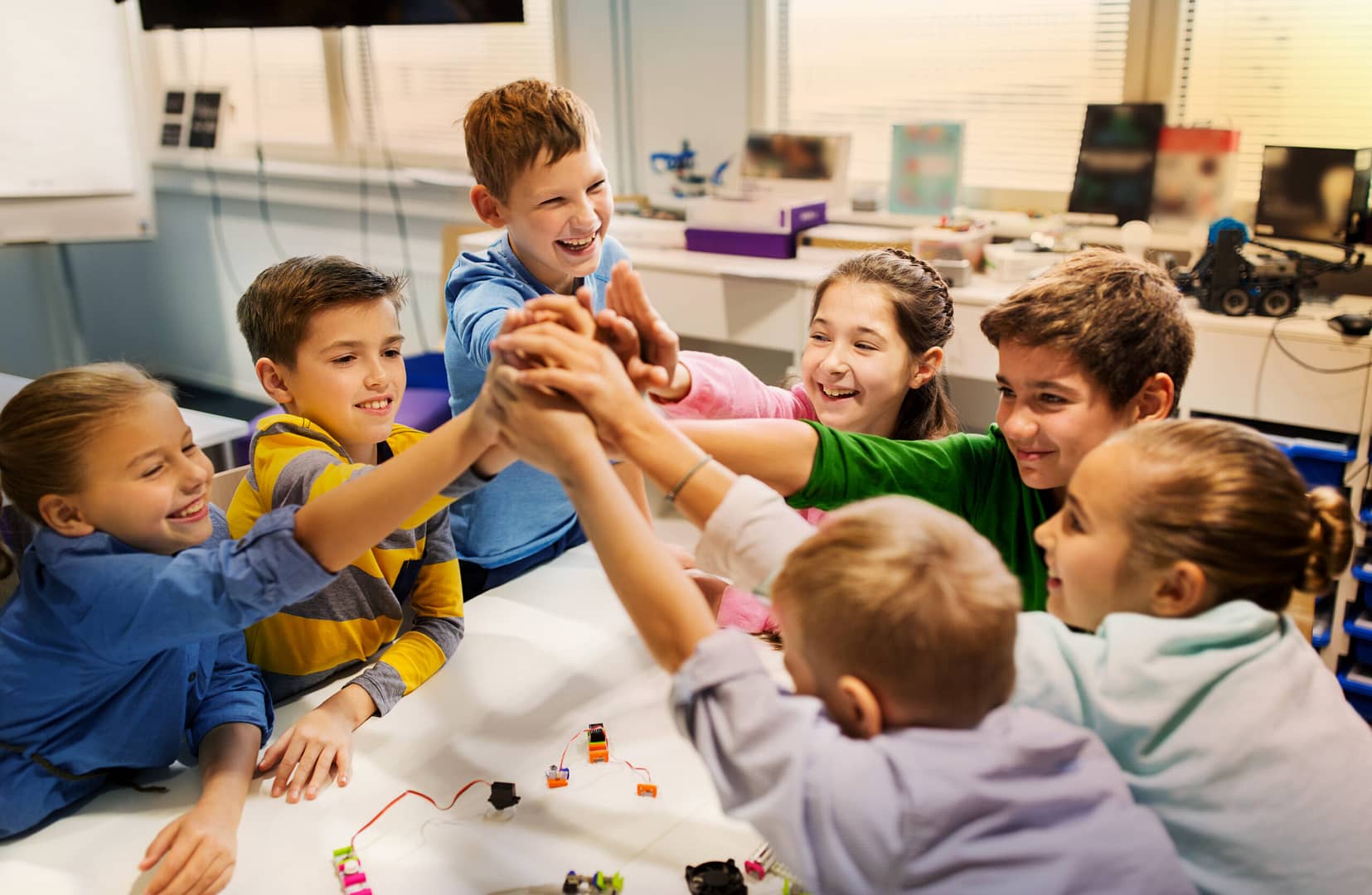Using PSHE Education To Support End Of Year Transition
Written by Sarah Huggins
Published on 8th July 2022
Last Updated: 23rd June 2025
Written by Sarah Huggins
Published on 8th July 2022
Last Updated: 23rd June 2025

As the end of the academic year approaches, teachers will be thinking about supporting children through transition, whether that be within school or to a new school or key stage. Many of us find change difficult, and it is important to recognise this for the children we work with. PSHE education should be a key aspect in how schools address this effectively. In this blog, we will consider some key themes to explore with children and consider how the Kapow Primary scheme of work for RSE & PSHE will help you do this effectively.
The Kapow Primary scheme includes a lesson on transition for every year group, exploring themes such as Strengths (Year 1), Roles and responsibilities (Year 5) and Dealing with change (Year 6).
A key part of positive mental health is for children to understand their feelings and emotions. This includes being able to describe and name feelings using an increasingly rich vocabulary. Children should also have the opportunity to explore how their bodies react to feelings; for example, feeling nervous might affect their stomach or stress might cause a headache.
Once children can recognise their emotions, they need to learn how to manage them. Everyone is different, so it is important that you try to teach children a range of coping strategies and encourage them to find some which suit them. For example, in Kapow Primary’s RSE & PSHE and FREE Wellbeing lessons, a range of relaxation techniques are taught. Children can be reminded of what they have learnt and can discuss which ones they find most helpful.
Once we understand our own feelings, we can start to understand the feelings of others. Children should be taught how to recognise physical and behavioural clues about how others might be feeling and ways they can help them. It is also useful to explore the fact that not only might individuals have different feelings from others about a situation but also that those individuals might themselves have various feelings about a specific situation. For example, some children will find change exciting, while others will be worried about it, and many children will feel both of these emotions – making it clear that this is normal will help them deal with their feelings.
Forthcoming changes can cause concerns about friendships; therefore, children need to be taught how friendships can change over time and how to deal with this. It is also useful to teach children how they might make friends and about strategies to deal with conflict.
This topic is often a concern for children moving up to secondary school. It is therefore important to explore how they can deal with bullying as a potential victim or bystander and think about both online and offline bullying. Exploring why people bully can also be useful as it might help children identify issues for themselves or others. Ensuring children know who they can go to for help is also vital.
All of the above themes are likely to have been covered in PSHE lessons, so it could simply be a case of reminding children about key points. However, you might also want to revisit some lessons that you think would be useful, especially for Year 6 pupils moving to Key Stage 3.
Other PSHE education themes that might be useful for transition lessons are road safety, keeping money safe, setting goals, resilience and diversity. To find out which of these themes the children might benefit from, consider conducting a survey or baseline assessment activity. For example, you could ask children to complete a table of positives and negatives of change such as things they are looking forward to and/or their worries over their new class or school. This information will enable you to plan appropriately.
Transition is a topic for which it is important to create a safe environment where children can ask questions and share concerns. In addition to your ground rules and distancing techniques, it is also highly recommended to have in place a question or worry box. Encourage children to use this so that concerns and questions can then be addressed individually or with the class. During lessons, you may wish to organise an activity where everyone has a piece of paper for writing down their concerns or questions. If all children write something and put their piece of paper in the box, then those individuals with problems will feel less self-conscious.
It is vital to think about the needs of vulnerable groups in your class. There may already be plans or procedures for those with special educational needs and disabilities (SEND) or emotional issues. It is also worth considering the needs of other children, such as those who do not have any older siblings at the new school or those who are going to a different school from their peers. Any of these children could need additional support, either individually or in small groups.
Supporting children through change is a vital part of end-of-year planning, and PSHE education provides an ideal framework for this. Revisiting key themes and creating a safe, supportive environment can help children feel more confident and prepared. With dedicated lessons on transition, the Kapow Primary scheme ensures pupils are equipped with the knowledge, skills and strategies they need to manage this important stage.